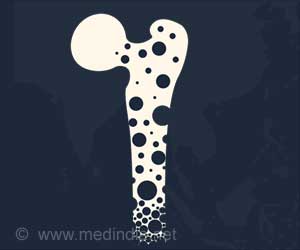Scientists at the University of California – Los Angeles (UCLA) have used cutting edge nanotechnology to measure the softness of cells
Scientists at the University of California – Los Angeles (UCLA) have used cutting edge nanotechnology to measure the softness of cells, thereby differentiating cancer cells from normal cells in patient samples.
In the study, the researchers, for the first time were able to take living cells from patients and apply nanotechnology to analyze them and ascertain which were cancerous and which were not. It may be possible that the nano science measurements provide a potential new method for detecting cancer, especially in cells from body cavity fluids where diagnosis using current methods poses a great challenge.The method also may aid in personalizing treatments for patients. When cancer is becoming metastatic, or invading other organs, the affected cells should travel throughout the body. As the cells need to enter the bloodstream and move through tight anatomical spaces, cancer cells are much more flexible, or softer, than normal cells.
Such spreading, invading cancer cells lead to a build-up of fluids in body cavities such as the chest and abdomen. However, not always does the build-up in patients mean cancer cells are present. If the testing of the fluid could be done quickly and accurately for the presence of cancer, oncologists could make better decisions about the aggressiveness of the treatment that should be administered or if any treatment is necessary at all.
Here, researchers collected fluid from the chest cavities of patients with lung, breast and pancreatic cancers, a relatively non-invasive procedure. Jianyu Rao, a researcher at UCLA’s Jonsson Cancer Center, an associate professor of pathology and laboratory medicine and one of the study’s senior authors said that one problem with diagnosing metastatic disease in such setting is that cancer cells and normal cells in body cavity fluids look very similar under an optical microscope.
Conventional diagnostic methods detect about 70 percent of cases where cancer cells are present in the fluid, missing about 30 percent of cases. “We detect cancer cells typically by looking at them under a microscope after the cells are fixed and stained with chemicals, which is really an antiquated method,” Nature Nanotechnology quoted Rao, as saying.
He added: “Usually the cancer cells have larger nuclei and other subtle features. However, the normal cells from body cavity fluids can look almost identical to cancer cells under an optical microscope. While staining for tumor protein markers could increase diagnostic accuracy, what we were missing was a way to determine if cancer cells have different mechanical properties than normal cells.”
Advertisement
“We had to measure the softness of the cell without bursting it. Otherwise, it’s like trying to measure the softness of a tomato using a hammer,” said Gimzewski. Gimzewski explained that the AFM uses a minute, sharp tip on a spring to push against the cell surface and determine the degree of softness. Think of it as an extension of a doctor’s hands performing a physical examination to determine disease.
Advertisement
The AFM, after probing a cell, assigns a value that represents how soft a cell is based on the resistance encountered. The team discovered that the cancer cells were much softer than the normal cells and they were similarly soft with very little variation in gradation. The normal, healthy cells from the same specimen were much stiffer than the cancer cells and, in fact, the softness values assigned to each group were not overlapping, making diagnosis using this nanomechanical measurement easier and more accurate.
“It was fascinating to find such striking characteristics between the metastatic cancer cells and normal cells,” said Sarah Cross, a graduate student in the chemistry and biochemistry department and a study author. She added: “The metastatic cancer cells were extremely soft and easily distinguishable from the normal cells despite similarities in appearance. And we’re looking at live cells taken from human patients, so that makes this is a unique finding.”
Calvin Quate of Stanford University, the co-inventor of the Atomic Force Microscope, said the UCLA study breaks new ground. “This manuscript is the first that directly shows a relationship between the nanomechanical properties and physiological function in clinical samples from patients with suspected cancer,” said Quate, 1992 Medal of Science recipient.
National breast cancer expert Susan Love said the study findings “open a new era for function-based tumor cell diagnostics.” “With these findings, it is foreseeable that a combined biochemical, biophysical and morphological analysis for analyzing human cytological specimens using AFM may be finally realized,” said Love, president and medical director of the Susan Love Research Foundation and a clinical professor of surgery at UCLA.
Next, the researchers will look at whether the nanomechanical analysis can be used to personalize cancer treatment based on the characteristics of a patient’s cancer cells. Rao said that there are standard chemotherapy drugs that are used to treat metastatic cancer; however the response varies from patient to patient.
If researchers could test the cancer cells beforehand, they could possibly apply therapies that would make the cells stiffer, making it more difficult for the diseased cells to spread through the body.
The study was published in the advance online edition of the journal Nature Nanotechnology.
Source-ANI
LIN/P











